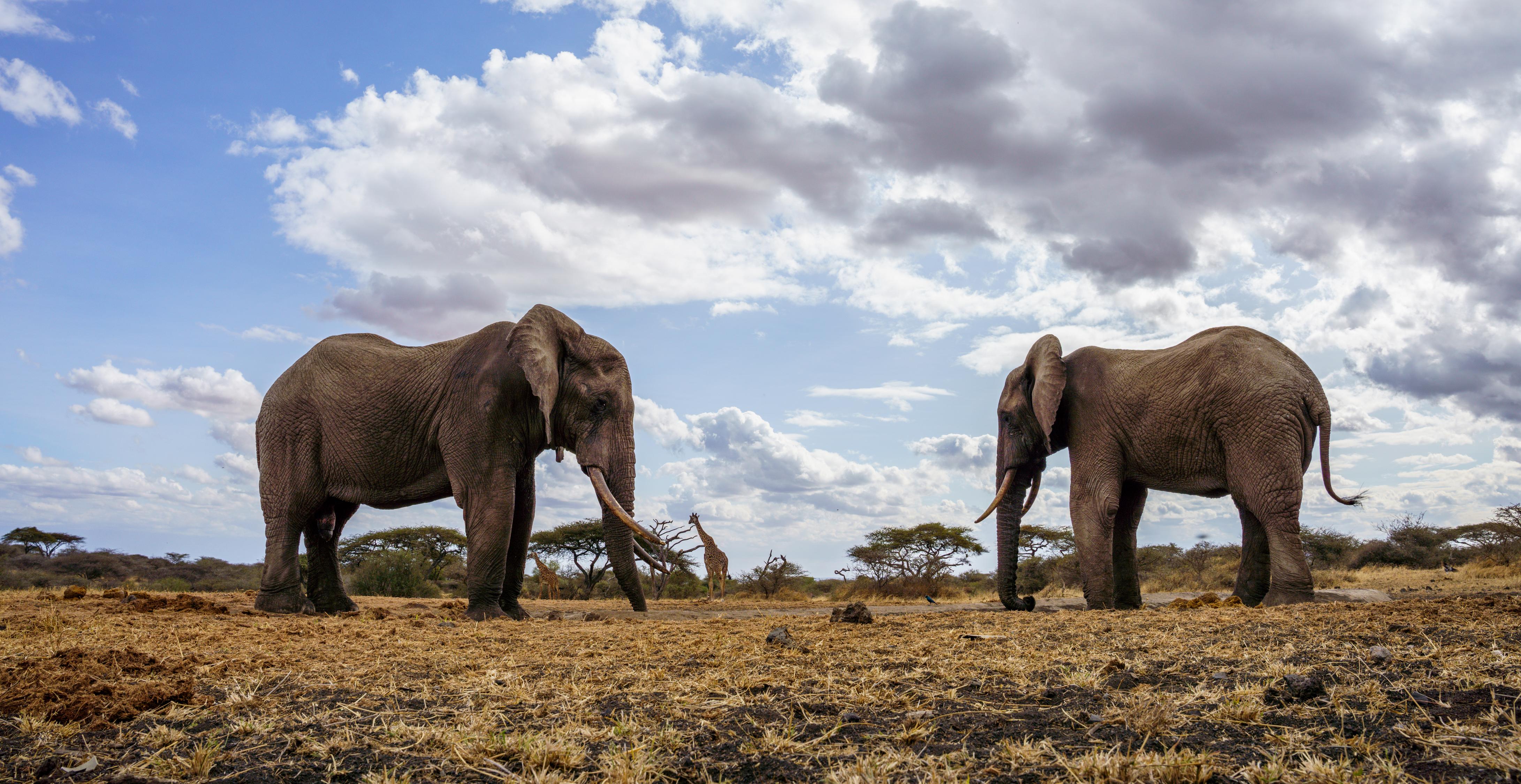
Governments worldwide have signed up to tackle the twin challenges of nature loss and climate change, which are impacting the lives and livelihoods of hundreds of millions of people. We partner with committed governments to design, fund and implement transformational global conservation initiatives.
Our plan
For more than 30 years, we have been proud to work alongside governments on our biggest conservation successes. From the first debt-for-nature swap in 1988 — which allowed Bolivia to protect 1.6 million hectares (4 million acres) of tropical rainforest — to our groundbreaking effort to conserve 10 percent of the Amazon with the government of France, our partnerships catalyze change.
We advise local, national and global decision-makers, providing data, science and counsel needed to protect and restore ecosystems at a large scale and integrate nature-based solutions into public policies.
We partner with the French Development Agency, the European Union, the Global Environment Facility, the Government of Japan and the World Bank in supporting the Critical Ecosystem Partnership Fund — which has helped conserve more than 890 species and protect 48 million hectares (119 million acres) of ecosystems.
Protecting and restoring nature for climate, increasing global ocean protection, leading scalable models of sustainability — these massive efforts require collaborative action. We build essential coalitions of private and public partners to conserve biodiversity, tackle climate change and achieve sustainable development for the benefit of people and nature.
The Global Environment Facility
As an accredited Project Agency of the Global Environment Facility (GEF), Conservation International directly works with national governments around the world to identify and design projects and advise on project execution, making sure that projects meet high technical and financial standards, while complying with the GEF’s environmental and social safeguards.
Green Climate Fund
As an Accredited Entity of the Green Climate Fund (GCF), Conservation International works with national governments and partners around the world to develop and implement ambitious projects that sustainably mitigate climate change and build the resilience of people to its impacts.

On the ground
Conservation International is committed to working with all governments and engaging with all sectors of society to achieve our ultimate goal of protecting the essential services that nature provides — such as fresh water, food, livelihoods and climate resilience — for the well-being of people. We leverage our experience in innovative finance and community-based solutions, as well as our network of corporate, multilateral, nonprofit, and national and local government partners to implement effective programs.
Nature for climate
Safeguarding the world’s largest rainforest
With funding from the Global Environment Facility and the World Bank, Conservation International-Brazil, the Brazilian Ministry of Environment and the Brazilian Biodiversity Fund are implementing the Amazon Sustainable Landscapes program to balance economic development with conservation.
Restoring and managing Kenya’s savannas
With funding from the International Union for the Conservation of Nature, and as an executing entity of the Green Climate Fund, Conservation International and the government of Kenya are working with partners to increase the resilience of the livestock sector.
Promoting coastal resilience in the Philippines
With funding from the French Facility for Global Environment and Bechtel Engineering, we are blending the restoration of ecosystems with conventional engineering to provide “green-gray infrastructure" — helping communities rebuild from Typhoon Haiyan and protect against climate change impacts.
Protecting Indonesia’s vital ecosystems
With funding from the International Climate Initiative, Conservation International-Indonesia, the Center for International Forestry Research and Wetlands International are protecting, conserving and restoring 80,000 hectares (198,000 acres) of peatlands and mangroves in West Papua.
Pioneering new mechanisms to save Amazonia
In a US $ 25 million partnership, Conservation International and the French Government will conserve nearly 73.1 million hectares (24.5million ha directly and 48.6 million ha indirectly) by 2025 by empowering 26 indigenous territories and local communities and pioneering new financial mechanism to advance conservation investments and incentives.
Oceans
Protecting the epicenter of marine biodiversity
Conservation International and more than 30 other partners joined local and national governments to protect West Papua, Indonesia’s Bird’s Head Seascape — the richest marine ecosystem in the world — in perpetuity.
Fishing for a prosperous future
The Eastern Tropical Pacific Seascape is a source of livelihoods and resources for coastal fishing communities in Costa Rica, Panama, Colombia and Ecuador. With support from the Blue Action Fund, we are working with local fishers associations to safeguard this network of marine protected areas.
Nature-based development
Cultivating sustainable production
Through the Good Growth Partnership, Conservation International is working in Brazil, Indonesia and Liberia to forge alliances between the public and private sectors to reduce deforestation and bring sustainability to global commodity supply chains, such as palm oil, beef and soy.
Protecting wildlife
The Protect Wildlife Project was launched in 2016 in collaboration with Conservation International and other partners to combat threats to wildlife and biodiversity in the Philippines.
Linking security and international conservation
The Natural Security campaign is a collaboration between Conservation International, The Nature Conservancy, Wildlife Conservation Society and World Wildlife Fund to educate the American public about the importance and benefits of international conservation efforts.